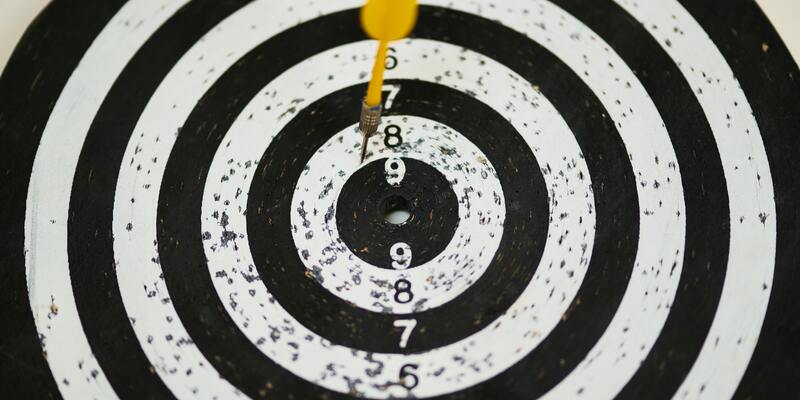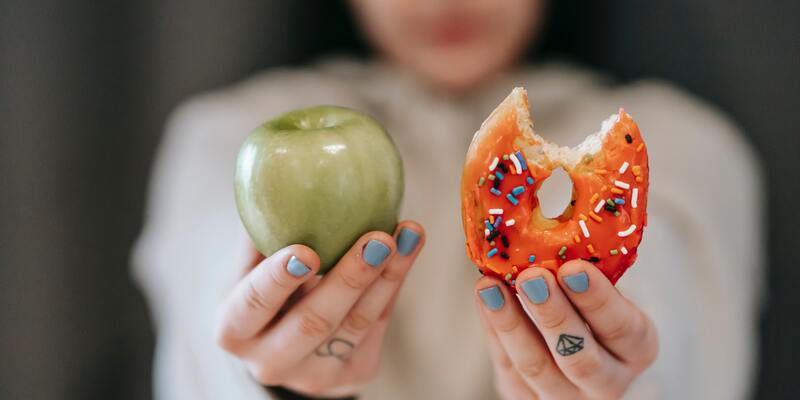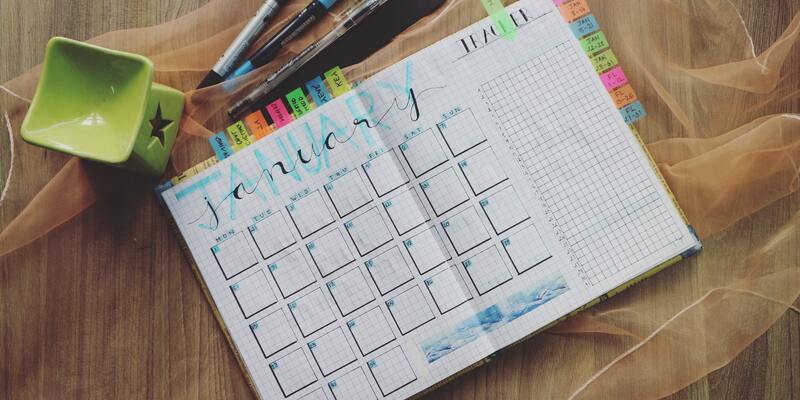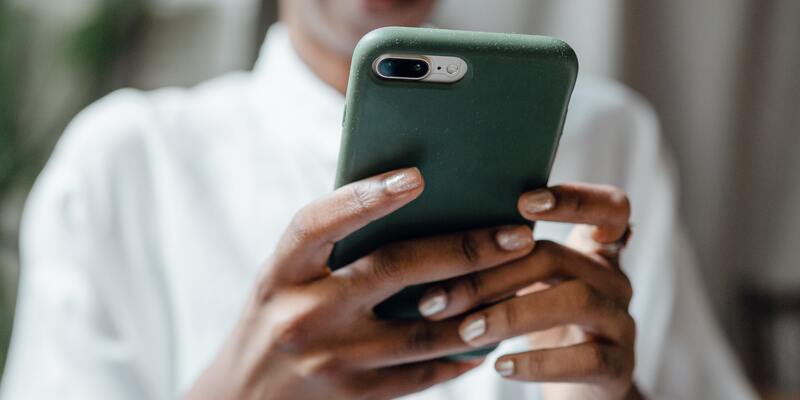5 steps to a procrastination-free morning routine

You’ve probably heard a lot of productivity experts talk about the health benefits of a morning routine. And it’s true: Having a familiar daily routine will help you minimize decision fatigue, maximize your emotional health and generally improve your mental health.

By Eleanor Hope-Jones
•
Oct 12, 2022
Regardless of whether you’re a morning person, there’s lots of science that backs up why a great morning routine is so beneficial. But there are also lots of myths about the perfect morning routine…
Like having to wake up at 5am, jump into an intense cardio workout, followed by a bio-hacked smoothie and half an hour of meditation.
Let's sort through the myths, the science and give you all the tips you need to develop your healthy habits and daily routine.
Why are morning routines so important?
Morning routines are proven to be excellent for your physical and mental health. One of the largest factors is how much it improves the quality of your sleep, which influences mental performance and general wellbeing.
A large part of this is because when your body knows what time it’s going to be waking up, it knows what time to make you sleepy. This is also known as having a strong circadian rhythm.
But it’s also to do with reducing decision fatigue throughout the rest of your day.
Morning routines and decision fatigue
Decision fatigue is the phenomenon of overusing your willpower because you’ve already had to make hundreds of small and large decisions.
Imagine your willpower is like a muscle – the more you have to use throughout the day the more tired that muscle becomes. Every time you make a decision you’re using a bit of willpower to decide what to do and then follow through with it.
When you have no willpower left in your cup that's when procrastination can become a huge problem, and you need to refill that cup with self-care, rest and a good night’s sleep.
A morning routine can preserve your precious willpower for your actual projects and ambitions like a healthy diet, rather than whether to start project a or finish project b.

Join a Flock for free to help you plan out your routine
Our expertly facilitated morning take-off session sessions will help you plan your day and get more done than you ever thought possible.
Run on Zoom and guided by one of our expert facilitators, Flocks are unique, fun – and so effective that 88% of people who try one come back for more.
5 habits to explore in your morning routine
So now you know why it’s so important to have a morning routine, but have to make some decisions of your own about what to include!
Before getting started we’d encourage you to think of your morning routine as an ever-evolving experiment in your own mental health and emotional wellbeing.
You can always add things in, take things out or change up the order.
But rather than mindless decisions you’re having to make every morning for no ultimate benefit, you’ll be making conscious decisions that consistently improve the quality of your mornings.
Like does running first thing in the morning work for me, or do I prefer a light stretch?
The more you experiment the more effective your routine will become! So let’s get started with some of the best habits that can help you start your morning off.
1. Make your decisions the night before
A bit of a curve ball, but we believe that taking a few extra moments the night before is when your morning routine actually starts.
Studies have shown visualization and specificity are two important parts of motivation. So if you know exactly what you’re going to do when you wake up you’re far more likely to achieve it.
In particular things like identifying your most important task to achieve that day can help you feel motivated to tackle it, and deciding what to wear can help minimize decision fatigue. All of this can help you get a better night’s sleep, and wake up with clearer intentions.
Have a look at our video on time management from FLOWN coach Micah
He explores timeboxing versus time-blocking as a way of planning what you’re working on the night before.
While we’re making decisions the night before, why not remove temptation?
You can support your future self even more by going to bed at a good time, not having your phone in the bedroom and investing in an alarm clock.
This will minimize distractions and encourage you to not snooze your morning away, or start the day with scrolling and endless procrastination.
Learn more about the danger of distractions and the power of deep work here.
2. Wake up at the same time
We’re not saying you have to wake up at 5am, or that you can’t have the occasional lie-in.
But as we mentioned earlier, waking up at the same time every day will reinforce your circadian rhythm so your body can operate more efficiently.
Studies have shown visualization and specificity are two important parts of motivation.
Someone with a strong circadian rhythm will go to sleep and wake up at a similar time every night and day, leading to their body being more energized and strong.
This improvement in your physical health with also improve your mental health, and can even help stabilize a mental health problem.
3. Give yourself something to look forward to
Finding time in the morning to cultivate joy and play is profoundly important. It makes it more likely that you’ll stick to your routine long enough for it to become embedded as a habit, and is generally good for your mental health.
There are lots of ways you can find joy, but some of our favorites include:
Setting aside five minutes to cuddle a partner or a pet
Reading a few pages of a good book or listening to 10 minutes of your favorite podcast
Romanticizing and mindfully drinking an excellent cup of coffee or morning pastry
Going outside for five minutes and feeling the sun on your face (perhaps with that cup of coffee)
Whatever you decide on we recommend you choose something you feel truly grateful for, and you realistically have time for every day.
Five minutes with a cup of coffee may be far more realistic than reading a whole chapter of a book.
4. Do something for your body
From Michelle Obama’s famous 4.30am gym visits to Mark Walberg's frankly alarming 2.30am workout start time, lots of people swear by the rise and grind.
But if the idea of working out first thing sends shivers down your spine don’t worry. Even 10 minutes of stretching can help wake up the body and improve circulation.
Hydration is another wonderful thing you can do for your body that’ll set your day up for success. Various studies have shared a whole host of benefits of drinking lots of water first thing from boosting mood, memory and mental performance to even improving the appearance and health of your skin.
Starting the day with a glass of water and a stretch doesn’t sound so bad, does it?
5. Take care of your mind
One of the simplest ways to do this is by finding gratitude daily.
Multiple studies show that gratitude positively correlates to improved physical health, psychological health, better relationships, sleep and self-esteem.
Finding gratitude can be as easy as mentally listing three things you’re grateful for the moment you wake up. It might be as basic as the feeling of the bed sheets against your skin, or as large as a promotion you’ve been working towards for months.
What’s important is consistently finding and recognizing things you have to be grateful for.
There are lots of other ways you can practice gratitude or do other kinds of things for your mind including:
Journaling
Affirmations
Meditations
Yoga
Remember, doing something small consistently, like writing down three things you’re grateful for, is better than doing something large irregularly, like a half an hour yoga routine once a month.
How do you establish a structure and a routine?
So you’ve imagined a perfect two-hour routine that will take you from a sleeping zombie to a functioning productive adult. But what’s the best way to establish that routine?
If you’re going from nothing we’d take it one step at a time to establish long-lasting change. Try out some of the following:
Make small changes and build on them
You may eventually want to go on five-mile jogs every morning, but putting your running shoes on and walking around the block will start to ingrain the habit. People often call this the 2-minute rule.
Be specific with your routine
If getting outside first thing is important for you give yourself a specific time, and task that will take you outside. You’re far more likely to go for a walk down the street at 8am for five minutes each morning than ‘spend time outside’.
If specificity and planning are what you need then why not read our take on procrastination planners?
Set yourself up for success
Remember your morning starts the night before. You’re a lot more likely to go for that run if you have your running shoes and outfit chosen, out and ready to go for that 7am sprint.
Stack your habits
Productivity expert James Clear recommends linking new habits you’re trying to form with old habits that are hard-wired. For example, saying three things you’re grateful for, a new habit, just after you brush your teeth but before your morning cup of coffee will be easier than doing it by itself.
Pair your habits
Another recommendation from Clear is connecting habits you find tricky with some kind of innate reward. This might look like only listening to your favorite podcast when you’re jogging, or only drinking your expensive coffee first thing in the morning.
Be compassionate with yourself!
Don’t expect to go from zero to 100 and remember everyone’s circumstances are different – you probably don’t have the financial resources of Mark Walberg or Michelle Obama!
Especially if you have children, are a carer or work in changing shift patterns that means maintaining the same routine is tricky.
Start by making small consistent changes, and watch with wonder how your mornings change.
















